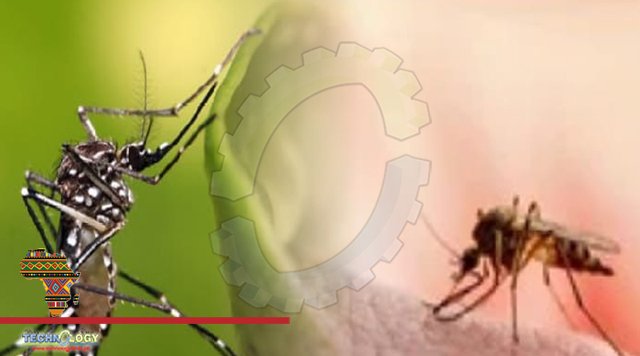Most people instantly associate mosquitoes with malaria. But these tiny flying insects can transmit a number of other diseases too.

Viruses transmitted by insects like mosquitoes are called arthropod-borne or arboviruses. Like malaria, these viruses are transmitted to vertebrate hosts through the bite of a female mosquito when she takes a blood meal to assist with her egg development. Most vertebrate hosts for these arboviruses are non-human. They include birds, primates and agricultural animals. But some arboviruses can be transmitted to humans with severe negative outcomes. Five of the most important arboviruses affecting communities in Africa include the chikungunya, dengue, West Nile, yellow fever and Zika viruses. It is estimated that half of the world’s population is at risk of being infected by an arbovirus. Some mosquito-borne diseases – but not all – can be fatal to humans. This confirms that every effort must be made to prevent being bitten by a mosquito and infected using both pharmaceutical and non-pharmaceutical measures. The name chikungunya is derived from the Kimakonde language (used in Tanzania and Mozambique) and means “to become contorted”. The symptoms of chikungunya virus include headaches, a rash, fatigue, fever and muscle and joint pain. Generally these symptoms clear within a week. Occasionally, an infection can result in a severe fever and extremely painful joints, which can last for months or years, inducing a hunched, contorted appearance. Unfortunately, there are no antiviral or vaccine treatments available for chikungunya virus. Deaths from chikungunya are rare and are generally associated with other underlying health problems.
The chikungunya virus was first identified in 1952 during an outbreak in Tanzania. It is transmitted by Aedes aegypti and Aedes albopictus mosquitoes. Over 100 countries across the globe have reported chikungunya virus cases. The risk of outbreaks is extremely high wherever these mosquito species are present around homes and urban areas. Female Aedes mosquitoes tend to feed just after sunrise and around sunset. They lay eggs that can survive drying out. This makes vector control rather challenging. Current control strategies focus on reducing the number of water containers that these mosquitoes like to breed in, the use of insecticides against adult mosquitoes and personal protection to prevent mosquito bites. The World Health Organization has classified dengue virus as one of the top ten global health threats. It’s one of the fastest spreading mosquito-borne diseases. At least half of the world’s population is at risk of infection. Like chikungunya virus, dengue is spread by Aedes aegypti and Aedes albopictus mosquitoes. Both viruses share the same control interventions and non-specific symptoms of headaches, a rash, fever and muscle and joint pain, so they are often misdiagnosed.Most human cases of dengue are asymptomatic or present with mild symptoms, which last for two to seven days. In certain individuals, dengue virus progresses to severe disease and symptoms include persistent vomiting, bleeding gums or nose and enlarged liver. This must be treated as a medical emergency as these complications can be lethal. Dengue virus can be diagnosed using a rapid diagnostic test or a polymerase chain reaction (PCR) test. But there is no treatment available. A vaccine has been developed and has been approved for use in a few countries – but is not widely available in Africa at present.
Source: This news is originally published by allafrica